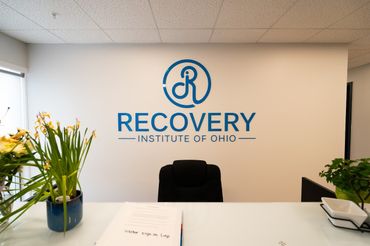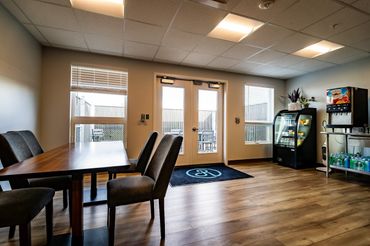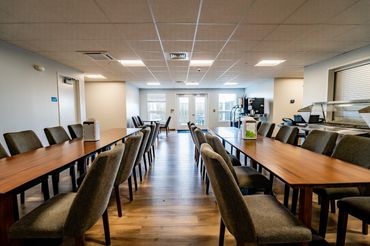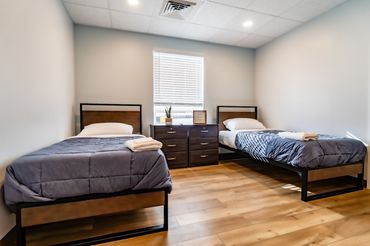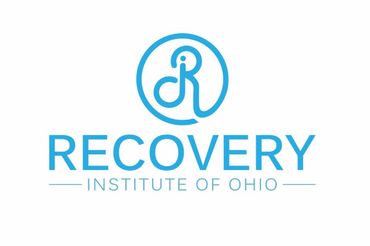
Drug & Alcohol Rehab Centers near Sandusky, OH
Finding treatment for substance use disorder in Sandusky, Ohio is a crucial first step towards recovery. Before embarking on this journey, it’s essential to understand your options and payment choices to ensure a smoother path to healing.
Treatment Centers near Sandusky, OH
Open to Travel? Check out Top-Rated Options
All Treatment Centers near Sandusky, OH
Are You Covered For Treatment?
- Columbus Rehabs
- Cleveland Rehabs
- Cincinnati Rehabs
- Akron Rehabs
- Dayton Rehabs
- Youngstown Rehabs
- Toledo Rehabs
- Canton Rehabs
- Hamilton Rehabs
- Newark Rehabs
Information About Rehab in Sandusky
Latest Reviews
Latest Reviews of Rehabs in Ohio
Stella Maris
Very caring and helpful with the family. Not enough counclers. The staff walked us all through the whole process and put us at ease about my loved ones care.
Licking County Alcoholism Prevention Program
understanding help and lessons were good. county funded and help from others
Community Counseling Center of Ashtabula County
Medication assisted therapy. .family counseling. Not always willing to work with clients. Truly a team based approach. Feel as if one is cared about. Education on addiction.
Area Information
Sandusky, Ohio, situated on the shores of Lake Erie, is a charming city known for its rich history, vibrant waterfront, and a population of about 25,0001 that’s both diverse and welcoming. With a variety of cultural attractions and a friendly community, Sandusky offers a unique blend of small-town charm and modern amenities.
Substance Misuse and Addiction in Sandusky, Ohio
The ongoing drug epidemic has taken a significant toll on Sandusky, as well as the entire state of Ohio. According to the Ohio Department of Health, Sandusky County, Ohio, experienced an average of 35 overdose fatalities per 100,000 residents between 2017 and 2021.2 In 2021 alone, the state of Ohio witnessed a staggering 5,174 overdose fatalities.2
Drug and Alcohol Rehab
Rehabilitation facilities offer a range of options and programs to treat addiction and support individuals on their path to recovery. These programs are tailored to address the specific needs and circumstances of each person, recognizing that the journey to recovery is unique for everyone.
What Happens in Drug and Alcohol Rehab?
Rehabilitation typically consists of several stages of care, including detox, inpatient treatment, outpatient programs, and aftercare. Each stage is designed to cater to individuals at different points in their recovery journey, providing the appropriate level of care for their specific needs.
Detox Programs
Detoxification is the initial phase of addiction treatment and is medically monitored to ensure the safe removal of substances from the body. For individuals grappling with substance use disorders, withdrawal symptoms can be both physically and mentally challenging. To alleviate these symptoms and provide a more comfortable detox process, medications may be administered under the supervision of healthcare professionals. This closely monitored period is crucial for helping individuals overcome the initial hurdles of recovery, and it serves as a bridge to more comprehensive treatment programs.
How Long Is Detox in Rehab?
The duration of detox can vary significantly, usually lasting anywhere from 3 to 7 days. Factors such as the type of substance being abused, the individual’s overall health, and the severity of withdrawal symptoms will determine the exact length. During this stage, the focus is on physical stabilization, setting the stage for the subsequent phases of treatment.
Inpatient Drug and Alcohol Rehab
Inpatient drug and alcohol rehab programs offer a structured and supportive environment for individuals seeking comprehensive treatment for their substance use disorders. Patients reside within the treatment facility for a specified duration, which can range from 30, 60, to 90 days, depending on the specific needs of the individual.
These programs integrate various therapeutic approaches, including individual counseling, group therapy, and behavioral interventions, to address the psychological and emotional aspects of addiction. In addition to treating the addiction itself, inpatient programs are designed to tackle any co-occurring disorders, such as depression or anxiety, that may be intertwined with substance abuse. This comprehensive approach ensures a holistic healing experience and equips patients with the skills and coping strategies needed to maintain long-term sobriety.
Outpatient Drug and Alcohol Rehab
Outpatient drug and alcohol rehab programs provide a flexible approach to addiction treatment, allowing individuals to receive the support they need while continuing to live at home and engage in their daily activities. These programs are particularly suitable for individuals who have completed inpatient treatment or for those with milder substance use disorders. Outpatient programs offer various levels of care, from intensive day programs to less intensive evening or weekend sessions.
They typically include therapy, counseling, and education on relapse prevention and coping skills. Tools for aftercare are provided to help individuals transition from active treatment to independent recovery. Outpatient treatment emphasizes the development of a strong support system, both within the program and in the patient’s daily life. This approach ensures that individuals have the resources and knowledge necessary to navigate the challenges of recovery while integrating back into their communities and daily routines.
How Much Does Rehab Cost?
The cost of rehab can be daunting, but it should not deter anyone from seeking help. Numerous resources and options exist to make treatment more affordable, such as:
- Payment Plans
- Government Grants and Scholarships
- Free Rehab
- State-Funded Rehab
Does Insurance Cover Drug and Alcohol Rehab?
Many insurance plans do provide partial coverage for rehab, and drug rehab insurance can help alleviate the financial burden. Widely accepted insurances include:
Finding The Best Rehab Center
Sandusky, Ohio Drug and Alcohol Rehab Facilities
When searching for rehab facilities, individuals can use our rehab locator tool to find nearby facilities, whether they choose to stay in Ohio or seek treatment elsewhere. Often, going out of state for treatment is recommended to reduce distractions and improve the chances of successful recovery, and our locator tool can help you find the most suitable facility.
Sources
- United States Census Bureau. Sandusky, Ohio. July 1, 2022.
- Ohio Department of Health. Preliminary Data Summary: Ohio Unintentional Drug Overdose Deaths. January 3, 2023.
